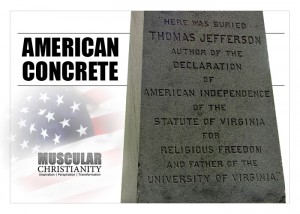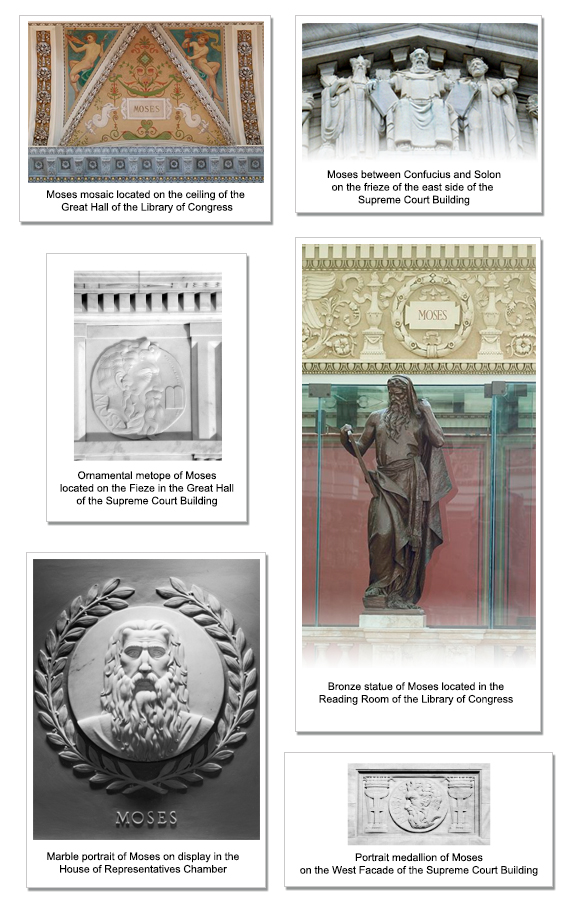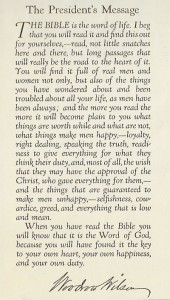
In the Old Testament, you’ve got men of renown – warrior kings and fighting prophets that trusted God and defeated their enemies with the Power and Perspective He provided.
Battlefield prowess was commended, an individual’s skill with a weapon was applauded. As a young man hearing these stories, you couldn’t help but be inspired by these real life champions and their accomplishments. You wanted be like them and be able to defeat your Goliath and stare down the lions in your world.
In the New Testament, you’ve got something quite different. Your principal characters are blue collar workers who quit their jobs to become full time missionaries – most of whom die a martyr’s death, presumably alone and penniless when they meet their end.
Jesus Christ, the King of kings and Lord of lords doesn’t lead a military attack. He submits Himself to a very public and painful execution. And while the significance of His having defeated the power of sin and death can’t be overstated, it can be confusing for an individual who’s trying to understand the way in which the Bible would have a man overcome his enemy. Does he use a sling and a sword or a kind word and a hot meal? Does he defeat his enemy with the Strength that God provides or does he love his enemy and turn the other cheek?
The short answer is: Both.
A godly man, at the very least, is a diligent student of Scripture and studies the Bible as a whole, recognizing that all Scripture is god-breathed (2 Tim 2:15). To insist that the New Testament condemns violence of any sort or that the Old Testament is a collection of battlefield sins that God merely tolerated rather than acts of holy heroism that He empowered, is to read into the text dynamics and personal preferences that are simply not there.
This essay was written as way to demonstrate the fact that there is such a thing as “sanctified violence” and this is a part of one’s masculinity that can be embraced as both holy and righteous when it’s being deployed in a manner that promotes and protects His Truth.
I) Introduction
Alvin York was awarded the Medal of Honor for his heroism during the battle during the battle of Chatel-Chehery on October 8, 1918. Initially he hesitated when he received word that he was being drafted into the Army due to his belief that Christians should abstain from warfare and violence.
Thankfully, he was convinced otherwise and his efforts at Chatel-Chehery saved the lives of the seven men he led in the engagement as well a the Germans he took prisoner.
His struggle with the Scriptures pertaining to violence bring up an interesting question: Does the Bible command that we are not to ever take up arms against our enemies? Does Scipture say that we are to never fight against those who would do us harm?
Passionate interpretations abound, but those who would insist on a pacifist disposition often leave out the way in which God obviously endorsed and empowered the violence done by the Israelites in the context of various military operations.
This essay seeks to examine the whole of Scripture in an effort to determine what God’s take is on the use of force, not only for the nation contemplating military action, but also for the individual wrestling with the idea of using physical force to stop his opponent.
II) Scripture as a Whole
In Matthew 26:47-68 when Jesus said that those who live by the sword, die by the sword, it’s important to take into consideration Scripture in its entirety and not only bits and pieces to ensure a proper interpretation.
A) God Doesn’t’ Change His Mind
God is not a man, that he should lie, nor a son of man, that he should change his mind. Does he speak and then not act? Does he promise and not fulfill? (Num 23:19)
God does not change. Some read the New Testament and insist that God is against any kind of violence and they cite Scriptures like Matthew 26:52-54 as evidence that we are to never take up arms to defend ourselves or to champion that which is right.
But there are other Scriptures that point very definitively to God’s endorsement of violence when it is He who is wielding the sword through the capable hands of a godly warrior. And those scenarios must be considered along with verses such as Matthew 26:52-24 in order to properly understand God’s Perspective and direction.
For example:
B) Old Testament Examples of God’s Endorsement of Violence
The Conquest of the Promised Land
20 When the trumpets sounded, the people shouted, and at the sound of the trumpet, when the people gave a loud shout, the wall collapsed; so every man charged straight in, and they took the city. 21 They devoted the city to the LORD and destroyed with the sword every living thing in it—men and women, young and old, cattle, sheep and donkeys. (Josh 6:20-21)
Ai
1 Then the LORD said to Joshua, “Do not be afraid; do not be discouraged. Take the whole army with you, and go up and attack Ai. For I have delivered into your hands the king of Ai, his people, his city and his land. 2 You shall do to Ai and its king as you did to Jericho and its king, except that you may carry off their plunder and livestock for yourselves. Set an ambush behind the city.” (Josh 8:1-2)
24When Israel had finished killing all the men of Ai in the fields and in the desert where they had chased them, and when every one of them had been put to the sword, all the Israelites returned to Ai and killed those who were in it. 25 Twelve thousand men and women fell that day—all the people of Ai. 26 For Joshua did not draw back the hand that held out his javelin until he had destroyed all who lived in Ai. 27 But Israel did carry off for themselves the livestock and plunder of this city, as the LORD had instructed Joshua. (Josh 8:24-27)
Five Amorite Kings
For it was of the LORD to harden their hearts, to meet Israel in battle in order that he might utterly destroy them, that they might receive no mercy, but that he might destroy them, just as the LORD had commanded Moses. (Josh 11:20)
List of Defeated Kings
Joshua 12 lists all of those kings who were defeated by the Israelites. These victories were accomplished as a result of combat and not diplomacy.
In Psalm 44:3, the Psalmist praises God for His having worked through the hands of the Israelites to secure their military victories…
It was not by their sword that they won the land, nor did their arm bring them victory; it was your right hand, your arm, and the light of your face, for you loved them. (Psalm 44:3)
You see the same kind of sentiment in Psalm 18…
He trains my hands for battle; my arms can bend a bow of bronze. You armed me with strength for battle; you made my adversaries bow at my feet. (Psalm 18:34, 39)
It is God’s Strength and Spirit that is credited for the military victories enjoyed by the Israelites.
In addition to the conquest of the Promised Land, you have other examples such as:
Building the Wall
Therefore I stationed some of the people behind the lowest points of the wall at the exposed places, posting them by families, with their swords, spears and bows. (Neh 4:13)
Skilled With a Sling
Among all these soldiers there were seven hundred chosen men who were left-handed, each of whom could sling a stone at a hair and not miss. (Judges 20:16)
Combat Training
These are the nations the LORD left in order to test Israel, since none of these Israelites had fought in any of the wars with Canaan. 2This was to teach the future generations of the Israelites [how to fight in] battle, especially those who had not fought before. (Judges 3:1-2)
David’s defense of the Israelites at Keilah
1When David was told, “Look, the Philistines are fighting against Keilah and are looting the threshing floors,” 2 he inquired of the LORD, saying, “Shall I go and attack these Philistines?” The LORD answered him, “Go, attack the Philistines and save Keilah.” (1 Sam 23:1-2)
Saul commanded by God to attack the Amalekites>
1Samuel said to Saul, “I am the one the LORD sent to anoint you king over his people Israel; so listen now to the message from the LORD. 2 This is what the LORD Almighty says: ‘I will punish the Amalekites for what they did to Israel when they waylaid them as they came up from Egypt. 3 Now go, attack the Amalekites and totally destroy [a] everything that belongs to them. Do not spare them; put to death men and women, children and infants, cattle and sheep, camels and donkeys.’ (1 Sam 15:1-3)
The fact of the matter is, “violence” is like fire. It can be used to cook your food, or it can burn your house down. Violence is defined as either heroism or criminal activity depending on the motive.
C) The New Testament – A Different Dynamic
In the New Testament, you have a different dynamic. Jesus did not come to conquer the Roman government; rather He came to conquer the power of sin. Given the nature of His mission, “violence” was not going to be needed. That does not mean that the kind of violence that God supported and empowered in the Old Testament is now no longer necessary or noble. The fact of the matter is, just like the Character of God didn’t change, neither did the need for “sanctified” violence.
When Jesus told the disciples to put their swords away in Matthew 26:52-24, He was:
- Ensuring that prophecy would be fulfilled and that His voluntary death and miraculous resurrection would be allowed to proceed.
- Protecting them. Two swords between 11 apostles was no match for a band of armed soldiers.
- Setting a precedent. Christianity is to be communicated with gentleness and respect and not at the tip of a sword. He was not issuing a new command to abstain from any kind of violence.
In the New Testament, Christ’s Mission, as has been stated before, was to reconcile man to God and in that vein, would not require or use violence to get the job done.
1) You’re Going to Need a Sword
But while Jesus would not use force to accomplish His Mandate, as God He cannot be anything other than consistent in all things, which includes His previously stated disposition towards sanctified violence. That disposition is revealed in the Old Testament in the context of the various battles that God won through the Israelites. In Luke, you can see it implied when He encourages His disciples to get a sword. He goes as far as to say that if they don’t, have one, to sell their cloak and go buy one.
36-37He said, “This is different. Get ready for trouble. Look to what you’ll need; there are difficult times ahead. Pawn your coat and get a sword. What was written in Scripture, ‘He was lumped in with the criminals,’ gets its final meaning in me. Everything written about me is now coming to a conclusion.” (Luke 22:36-37 [MSG])
The NIV Text Note reads:
buy one An extreme figure of speech used to warn them of the perilous times about to come. They could need defense and protection, as Paul did when he appealed to Caesar (Acts 25:11) as the one who “bears the sword” (Rom 13:4 )
There are several schools of thought reinforced with compelling sounding commentaries that insist that God is a Pacifist and that Jesus was a nice guy who would never think of picking up a sword.
The Intervarsity Press has this commentary on the passage in Luke where Jesus refers to swords:
They must now expect that their enemies would be more fierce than they had been, and they would need weapons. At the time the apostles understood Christ to mean real weapons, but he spake only of the weapons of the spiritual warfare. The sword of the Spirit is the sword with which the disciples of Christ must furnish themselves. (Lu 22:39-46)
But Jesus said to sell your cloak and go buy a sword if you didn’t have one. He’s referring to a weapon – something tangible that can be purchased. The Sword of the Spirit, which is the Word of God, is not “bought,” as much as it is read and obeyed. The context of Christ’s Words do not allow for an interpretation other than His saying that the disciples would need weapons.
2) Turn the Other Cheek
Another common argument against the use of force would be the way in which Christ’s directions to “turn the other cheek” are interpreted to mean that you respond to an attack by simply giving your attacker yet another opportunity to harm you, perhaps even destroy you.
You have the passage in Matthew…
38“You have heard that it was said, ‘Eye for eye, and tooth for tooth.'[g] 39But I tell you, Do not resist an evil person. If someone strikes you on the right cheek, turn to him the other also. 40And if someone wants to sue you and take your tunic, let him have your cloak as well. 41If someone forces you to go one mile, go with him two miles. 42Give to the one who asks you, and do not turn away from the one who wants to borrow from you. (Matt 5:39)
…and in Luke:
27“But I tell you who hear me: Love your enemies, do good to those who hate you, 28bless those who curse you, pray for those who mistreat you. 29If someone strikes you on one cheek, turn to him the other also. If someone takes your cloak, do not stop him from taking your tunic. 30Give to everyone who asks you, and if anyone takes what belongs to you, do not demand it back. 31Do to others as you would have them do to you. (Luke 6:27-31)
Both passages begin by establishing the context of Jesus’ words by referring to the statute in the law of Moses where the punishment was to fit the crime. Centuries later, additional stipulations had been added making it seemingly correct to counter any indignity or offense to be countered with something in kind.
In many ways, Jesus is saying to take the high road. Should someone offend you or insult you, He’s saying to get over it. However, He is not saying to not defend yourself or to never fight. In this passage, He’s referring to an assault on your dignity and not an attack on your person. A slap on the cheek was considered an insult, not a physical attack. Consider Lamentations 3:30:
30 Let him offer his cheek to one who would strike him, and let him be filled with disgrace. (Lam 3:30 [see also 1 Kings 22:24; Is 50:6])
The commentary provided by the InterVarsity Press reinforces the point of a slap in the face was considered an indignity, not an assault:
As in much of Jesus’ teaching, pressing his illustration the wrong way may obscure his point. In fact, this would read Scripture the very way he was warning against: if someone hits us in the nose, or has already struck us on both cheeks, are we finally free to hit back? Jesus gives us a radical example so we will avoid retaliation, not so we will explore the limits of his example (see Tannehill 1975:73). A backhanded blow to the right cheek did not imply shattered teeth (tooth for tooth was a separate statement); it was an insult, the severest public affront to a person’s dignity (Lam 3:30; Jeremias 1963:28 and 1971:239). God’s prophets sometimes suffered such ill-treatment (1 Kings 22:24; Is 50:6). Yet though this was more an affront to honor, a challenge, than a physical injury, ancient societies typically provided legal recourse for this offense within the lex talionis regulations (Pritchard 1955:163, 175; see also Gaius Inst. 3.220). (“Avoid Retribution and Resistance”, IVP Commentary, accessed April, 2 2009)
The bottom line is that this passage has Jesus not changing the Law or issuing a new Divine Perspective on violence, rather He was repairing the damage done that had been done to the Law. “An eye for an eye” had been perverted into something beyond ensuring that the punishment fit the crime, now it was being used to justify getting even, however insignificant the infraction may be.
Again, the context this passage, both culturally and theologically, is dealing with attacks on one’s character and pride, not physical abuses.
Two things Christ teaches us here:1. We must not be revengeful (v. 39); I say unto you, that ye resist not evil; —the evil person that is injurious to you. The resisting of any ill attempt upon us, is here as generally and expressly forbidden, as the resisting of the higher powers is (Rom. 13:2); and yet this does not repeal the law of self-preservation, and the care we are to take of our families; we may avoid evil, and may resist it, so far as is necessary to our own security; but we must not render evil for evil, must not bear a grudge, nor avenge ourselves, nor study to be even with those that have treated us unkindly, but we must go beyond them by forgiving them, Prov. 20:22; 24:29; 25:21, 22; Rom. 12:7. (Matthew Henry)
So while turning the other cheek is very much a part of the Christian approach to confrontation, it is not to be confused with the notion that God frowns on defending yourself.
3) Love Your Enemies and Bless Those Who Persecute You
The first part of the Matthew and Luke passages talk about treating your enemy with love and compassion. The Message offers a great paraphrase of the Matthew text:
43-47“You’re familiar with the old written law, ‘Love your friend,’ and its unwritten companion, ‘Hate your enemy.’ I’m challenging that. I’m telling you to love your enemies. Let them bring out the best in you, not the worst. When someone gives you a hard time, respond with the energies of prayer, for then you are working out of your true selves, your God-created selves. This is what God does. He gives his best—the sun to warm and the rain to nourish—to everyone, regardless: the good and bad, the nice and nasty. If all you do is love the lovable, do you expect a bonus? Anybody can do that. If you simply say hello to those who greet you, do you expect a medal? Any run-of-the-mill sinner does that. 48“In a word, what I’m saying is, Grow up. You’re kingdom subjects. Now live like it. Live out your God-created identity. Live generously and graciously toward others, the way God lives toward you.” (Matt 5:43-48)
Some will walk away from this passage and take it to mean that you are to never defend yourself or to never take up arms against a warring nation. Again, it’s crucial to consider Scripture as a whole and dispatch a perspective that is comprehensive as opposed to exclusive when attempting to mine the meaning of Christ’s words.
First off, this isn’t the first time God has admonished His people to treat their enemies with kindness and consideration.
“If you come across your enemy’s stray ox or donkey, you must return it to him. (Ex 23:4)
Do not abhor an Edomite, for he is your brother. Do not abhor an Egyptian, because you lived as an alien in his country. (Dt 23:7)
But while God has said, for example, not to abhor an Edomite, in 1 Chronicles you have David triumphing over 18,000 Edomites:
12 Abishai son of Zeruiah struck down eighteen thousand Edomites in the Valley of Salt. 13 He put garrisons in Edom, and all the Edomites became subject to David. The LORD gave David victory everywhere he went. (1 Chron 18:12-13)
And while God tells the Israelites not to abhor an Egyptian, 2 Samuel relays the exploits of Benaiah:
20 Benaiah son of Jehoiada was a valiant fighter from Kabzeel, who performed great exploits. He struck down two of Moab’s best men. He also went down into a pit on a snowy day and killed a lion. 21 And he struck down a huge Egyptian. Although the Egyptian had a spear in his hand, Benaiah went against him with a club. He snatched the spear from the Egyptian’s hand and killed him with his own spear. 22 Such were the exploits of Benaiah son of Jehoiada; he too was as famous as the three mighty men. (2 Sam 23:20-22)
Benaiah (pronounced bee –NIGH –uh) would be distinctive, not only in his military prowess, but also in the way he supported Solomon’s succession to the throne (1 Kings 1-2) and his ultimately replacing Joab as commander of Israel’s armies (1 Kings 2:35).
As has been mentioned before, God works through the swords and shields of his people to do his bidding in the context of sanctified violence. And just like turning the other cheek doesn’t mean that we are allow an intruder to harm our family, loving your enemy and blessing those who persecute you does not negate the appropriate use of force when your enemy is engaged in something that goes beyond insulting rhetoric or offensive gestures.
The question then is, “How do you profess to treat your enemy as a ‘child of God’ when you’re actively engaged in killing him?” The same question could be raised in the context of capital punishment: How is mercy being manifested in the execution of a criminal?
The answer lies in two main ideas:
- Remembering that your enemy is a child of God
- You treat your enemy humanely. Since we are all made in God’s image, it is then possible to find something good in everyone. That’s at least some of what lies behind God’s command to not abhor an Edomite or an Egyptian. In the instance of the Egyptians, they were the host country of the Israelites for centuries. In the case of the Edomites, they were related (Edom was Esau, brother the Jacob).
However heinous your enemy may be, they are nevertheless a “creation” of God and are therefore entitled to being handled as such. Matthew Henry:
Note, it is the great duty of Christians to love their enemies; we cannot have complacency in one that is openly wicked and profane, nor put a confidence in one that we know to be deceitful; nor are we to love all alike; but we must pay respect to the human nature, and so far honour all men: we must take notice, with pleasure, of that even in our enemies which is amiable and commendable; ingenuousness, good temper, learning, and moral virtue, kindness to others, profession of religion, etc., and love that, though they are our enemies. (commentary on Matthew 5)
As a child of God, a person is deserving of humane treatment. However compelling the temptation may be to make your adversary suffer, you don’t see any trace of Israel exacting tortuous tactics on their enemy, and that is the template that we must follow.
Bear in mind, however, that once an enemy had proved themselves to be worthy of death, rarely did you see that enemy spared. While you don’t see Israel ever torturing their enemy, Israel nevertheless decimated their foes.
They devoted the city to the Lord and destroyed with the sword every living thing in it – men and women, young and old, cattle, sheep and donkeys. (Jos 6:21)
When Israel had finished killing all the men of Ai in the fields and in the desert where they had chased them, and when every one of them had been put to the sword, all the Israelites returned to Ai and killed those where were in it. Twelve thousand men and women fell that day – all the people of Ai. (Josh 8:24-25)
Then Joshua struck and killed the kings and hung them on five trees, and they were left hanging on the trees until evening…That day Joshua took Makkedah. He put the city and its king to the sword and totally destroyed everyone in it. He left not survivors. And he did to the king of Makkedah as he had done to the king of Jericho. (Josh 10:26, 28)
The Lord also gave that city and it s king into Israel’s hand. The city and everyone in it Joshua put to the sword. He left no survivors there. And he did to its king as he had done to the king of Jericho. (Josh 10:30)
32 The LORD handed Lachish over to Israel, and Joshua took it on the second day. The city and everyone in it he put to the sword, just as he had done to Libnah. 33 Meanwhile, Horam king of Gezer had come up to help Lachish, but Joshua defeated him and his army—until no survivors were left. 34 Then Joshua and all Israel with him moved on from Lachish to Eglon; they took up positions against it and attacked it. 35 They captured it that same day and put it to the sword and totally destroyed everyone in it, just as they had done to Lachish. 36 Then Joshua and all Israel with him went up from Eglon to Hebron and attacked it. 37 They took the city and put it to the sword, together with its king, its villages and everyone in it. They left no survivors. Just as at Eglon, they totally destroyed it and everyone in it. 38 Then Joshua and all Israel with him turned around and attacked Debir. 39 They took the city, its king and its villages, and put them to the sword. Everyone in it they totally destroyed. They left no survivors. They did to Debir and its king as they had done to Libnah and its king and to Hebron. (Josh 10:32-39)
12 Joshua took all these royal cities and their kings and put them to the sword. He totally destroyed them, as Moses the servant of the LORD had commanded. 13 Yet Israel did not burn any of the cities built on their mounds—except Hazor, which Joshua burned. 14 The Israelites carried off for themselves all the plunder and livestock of these cities, but all the people they put to the sword until they completely destroyed them, not sparing anyone that breathed. 15 As the LORD commanded his servant Moses, so Moses commanded Joshua, and Joshua did it; he left nothing undone of all that the LORD commanded Moses. (Josh 11:12-15)
It should be noted that the battles Israel engaged in were not about the acquisition of wealth and plunder, as much as it was about God’s wrath being poured out on the Canaanites for their idolatry and rebellious acts:
4 After the LORD your God has driven them out before you, do not say to yourself, “The LORD has brought me here to take possession of this land because of my righteousness.” No, it is on account of the wickedness of these nations that the LORD is going to drive them out before you. 5 It is not because of your righteousness or your integrity that you are going in to take possession of their land; but on account of the wickedness of these nations, the LORD your God will drive them out before you, to accomplish what he swore to your fathers, to Abraham, Isaac and Jacob. (Dt 9:4-5 [see also Dt 7:16; Josh 1:20])
The Canaanites were created by God as were all of the other peoples that He slated for destruction. While His love for them remained constant, so did His sense of Justice. While His Love is represented in His not wanting anyone to perish (2 Pet 3:9), His Justice was made manifest in the guilty being punished.
You can see the same dynamic in the New Testament. While God’s Love and Mercy knows no limitations, His Justice remains Perfect and Immutable.
But these men blaspheme in matters they do not understand. They are like brute beasts, creatures of instinct, born only to be caught and destroyed, and like beasts they too will perish. (2 Pet 2:12)
These men being referred to in 2 Peter are the same people being referred to in chapter 3, as far as God not wanting anyone to perish. But, the man who has willfully turned his back on God and gone on to commit rebellious acts will be punished. The punishment he receives is due to the fact that he chose not to accept God’s Mercy, not because God’s Love do not apply or was withheld.
If “loving my enemy” results in a disposition that excuses any and all wrongdoing, that its no longer love. While love keeps no record of wrongs, it does not “delight in evil” (1 Cor 13:6), nor does it attempt to re-define wrongful behavior as a noble act or something that don’t merit punishment.
God is love (1 Jn 4:16), but He is also just (Nah 1:3; 2 Thess 1:8-10). Insisting that His Love can somehow be perverted into a disposition that overlooks any and all wrongdoing is to lessen His Just nature and to cheapen His Grace.
A.W. Tozer in his book, “That Incredible Christian” says this:
Truth is like a bird; it cannot fly on one wing. Yet we are forever trying to take off with one wing flapping furiously and the other tucked neatly out of sight.
I believe it was Dr. G. Campbell Morgan who said that the whole truth does not lie in “It is written,” but in “It is written” and “Again it is written.” The second text must be placed over against the first to balance it and give it symmetry, just as the right wing must work along with the left to balance the bird and enable it to fly.
Many of the doctrinal divisions among the churches are the result of a blind and stubborn insistence that truth has but one wing. Each side holds tenaciously to one text, refusing grimly to acknowledge the validity of the other. This error is an evil among churches, but it is a real tragedy when it gets into the hearts of individual Christians ad begins to affect their devotional lives.
Lack of balance in the Christian life is often the direct consequence of overemphasis on certain texts, with a corresponding underemphasis on other related ones. For it is not denial only that makes a truth void; failure to emphasize it will in the long run be equally damaging. And this puts us in the odd position of holding a truth theoretically while we make it of no effect by neglecting it in practice. Unused truth become as useless as an unused muscle. (“That Incredible Christian”, A.W. Tozer, p59, Christian Publications,Inc. Harrisburg, PA, 1964)
The same kind of thing is being referred to in the book of Ecclesiastes:
16 Do not be overrighteous, be overwise— why destroy yourself? 17 Do not be overwicked, and do not be a fool— why die before your time? 18 It is good to grasp the one and not let go of the other. The man who fears God will avoid all extremes. (Ecc 7:16-18)
To “love your enemy” in a way that ignores Justice and accommodates whatever wrongdoing they would exact upon the world around them, is to substitute God’s Love with a human license to engage in any kind of criminal or unethical behavior without fear of punishment. The person who dispatches that kind of love is, as A.W. Tozer described, “…flying on one wing.”
It is not either / or, rather it is both / and. To love my enemy the way Jesus commanded and the way which God demonstrated means that I love them as one who has been created in the image of my Heavenly Father and therefore deserving of any and all godly considerations. It also means that when their behavior places them in the category of a criminal or a threat, I take whatever steps are necessary to protect the innocent and ensure the proper dispatch of justice. That approach accommodates the whole of Scripture as opposed to that perspective that emphasizes only a portion of the Bible and ignores the rest.
III) Conclusion – A Balanced Approach
The balanced approach (see Ecc 7:16-18) to all this seems to point to two definitive Truths:
- Christianity is communicated and proliferated through one’s witness and not one’s weapons.
The weapons we fight with are not the weapons of the world. On the contrary, they have divine power to demolish strongholds. (2 Cor 10:4)
15But in your hearts set apart Christ as Lord. Always be prepared to give an answer to everyone who asks you to give the reason for the hope that you have. But do this with gentleness and respect, 16keeping a clear conscience, so that those who speak maliciously against your good behavior in Christ may be ashamed of their slander. (1 Peter 3:15-16 [emphasis added])
- Violence has been and can be used by God to accomplish His Purposes. That being the case, it is wrong to say that all violence is sinful and has no place in a Christian mindset. Championing and defending God’s Agenda is both noble and a manifestation of being obedient to God’s Directions.
In conclusion then, Judges 3:1-2 makes it clear that God placed a premium on making sure that the Israelites knew how to fight. It makes sense given the number of times Israel was called upon to strap on their swords and do battle with the enemies of God. In the New Testament, while Jesus does make it clear that to be reckless and hasty in resolving to remedy any and all disputes with a weapon is foolish (Those who live by the sword, die by the sword [Matt 26:52]), and He encourages believers to respond to insults and offenses by “turning the other cheek,” the context and verbiage of His admonishing the disciples to arm themselves taken along with God’s obvious endorsement of military force in the Old Testament compellingly demonstrates the Truth and Biblical place of “sanctified violence.”
Know how to fight, understand and practice the difference between justice and revenge and seek God’s Direction in all things so that however your enemy may confront you, whether with words or weapons, your response is indicative of Who you serve. That’s the difference between the violence that is done out of fear and pride as opposed to the violence that is truly sanctified.
For further reading, refer to the links below:
 I teach a Sunday School class and I’m having the parents attend with their sons tomorrow morning. One of the moms asked me “What are we going to be doing?” Bottom line is I want to pitch a vision of what we want to teach, how we want to present it and what the ultimate goal is.
I teach a Sunday School class and I’m having the parents attend with their sons tomorrow morning. One of the moms asked me “What are we going to be doing?” Bottom line is I want to pitch a vision of what we want to teach, how we want to present it and what the ultimate goal is.





 man happiness.”5
man happiness.”5 George Washington, Benjamin Rush, John Dickinson, etc.), were passed on to his grandson who compiled those documents into a two-volume work published in 1825. After having studied those personal letters, the grandson described the great body of men who founded the nation in these words:
George Washington, Benjamin Rush, John Dickinson, etc.), were passed on to his grandson who compiled those documents into a two-volume work published in 1825. After having studied those personal letters, the grandson described the great body of men who founded the nation in these words:





















You must be logged in to post a comment.